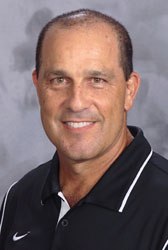by Keith Zafren
Mark Twain wrote, “It is curious that physical courage should be so common in the world and moral courage so rare.” We dads have tremendous influence and power to shape moral character in our children. And one of the best ways to do that is to take advantage of teachable moments as they naturally arise—which they will—as long as we are paying attention and are equipped to do so.
Here’s an example of a teachable moment when I tried shape one of my boys. He was ten at the time, and I had caught him in an obvious lie. The circumstances of the lie are not important, but my approach that time had a positive impact on him, so I want to share what I did and said in case it might be useful to you.
 When I learned that my son had lied to me, I thought about confronting him with the evidence to elicit a confession. What else could he do at that point? But I was afraid that approach might not help him learn from the situation like I wanted him to. So, here are the principles I tried:
When I learned that my son had lied to me, I thought about confronting him with the evidence to elicit a confession. What else could he do at that point? But I was afraid that approach might not help him learn from the situation like I wanted him to. So, here are the principles I tried:
1. Have a calm, open conversation that invites honesty without fear.
I said to him, “Son, I want to ask you about this. And I want you to tell me the truth. I know that it’s hard to tell the truth when you’re afraid you’ll be punished. So, this one time, I want you to know I am not going to discipline you if you did what I think you did. Got it? No consequences this time. I just want you to practice telling me the truth.”
2. Reinforce the importance of character.
I described what had happened, then asked him, “Son, did you do this? Remember, what’s most important to me at the moment is your character—not whether or not you did this thing. I want my boys to grow up to be truth-tellers. I know I need to teach you how to do that. So again, don’t be afraid of being disciplined—you will not be this time. I want to know that you are able to tell the truth, to own what you did, to take responsibility for your actions. Son, did you do this?”
3. Provide a real opportunity to tell the truth.
He looked at me for a long moment, I suspect in disbelief. Could he really get away with this? Was I being serious? Could he trust me to keep my word and not discipline him? I asked him again, “Son, I want you to be honest and tell me. Did you do this?”
He looked down at the floor and meekly said, “Yes, I did.”
4. Celebrate every glimpse of the character you wish to shape.
Now came the moment of truth. I said, “Son, look at me.” He looked into my eyes. I said, “I’m so proud of you. You told me the truth. That’s what I want to see grow in you, the character quality of honesty—the ability to speak the truth no matter what. Fantastic! Just as I promised, you will not be disciplined this time.” I hugged him to reinforce my love for him. Then I looked into his eyes and again affirmed him for telling the truth.
He apologized on his own: “Sorry, Dad.” Then he actually thanked me.
YOUR TURN: Look for teachable moments to shape character.
I hope the way I handled the situation taught my son something more than discipline might have. And from what I’ve seen in him so far, I believe he has taken the lesson to heart. Kids are all different, and this may not work well with every child, but it seems to have worked in my family pretty well.
Please don’t misunderstand. I’m not suggesting that dads routinely let their children bypass the consequences of their mistakes or bad choices. Discipline and difficult consequences can often be good teachers. However, there may be times when a different approach like this might work even better. Every once in a while, it’s good to give your child convincing evidence that you really are on his side and your goal is to help him grow, not just to make his life more difficult. It’s important to let him know you understand, and that he is far more important to you as a person than anything he does or says.
You can decide what’s best in your family. But keep one question in mind when these teachable moments come your way. It’s the question I was considering that day with my son, and it’s what I try to remember to ask myself in every similar situation:
How can I shape my child’s character through what just took place?
When I focus on that goal, I tend to think a bit more creatively than simply reacting in the moment with discipline for the behavior or the words. Perhaps you will, too.
.
 Keith Zafren lives in Kentucky and is founder of The Great Dads Project and author of the award-winning book, How to Be a Great Dad—No Matter What Kind of Father You Had. He teaches practical fathering skills and offers personal coaching to fathers, including his FREE video training course. Keith has spent seventeen years learning firsthand how to raise three great kids—now all teenagers—and stay close to them, no matter what.
Keith Zafren lives in Kentucky and is founder of The Great Dads Project and author of the award-winning book, How to Be a Great Dad—No Matter What Kind of Father You Had. He teaches practical fathering skills and offers personal coaching to fathers, including his FREE video training course. Keith has spent seventeen years learning firsthand how to raise three great kids—now all teenagers—and stay close to them, no matter what.

